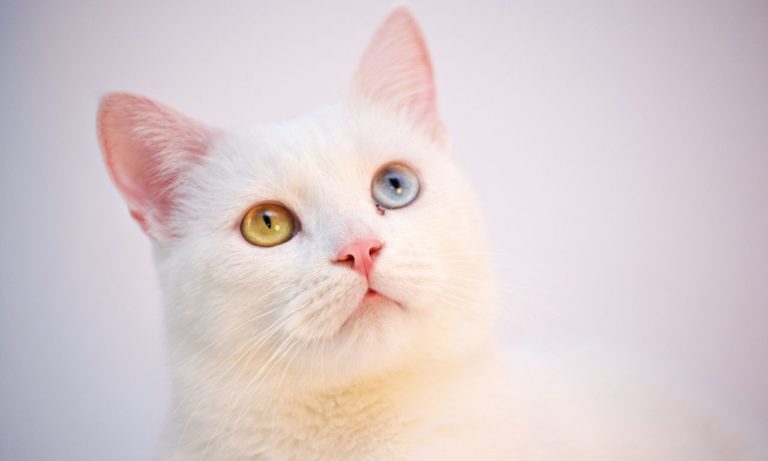Cat Leaking Brown Fluid (Reasons, Symptoms & Treatment)
Every cat owner knows that one of the most important things to do is keep an eye on their cat’s litter box. After all, a clean litter box is crucial to keeping your kitty happy and healthy. But what happens when you notice that your cat is leaking brown fluid from their bottom?
At first, you may be alarmed and wonder if something is seriously wrong. However, in many cases, this brown leakage is actually perfectly normal and nothing to worry about. It’s simply a sign that your cat is ready to mate.
When a female cat goes into heat, her body begins producing extra hormones. These hormones cause changes in her reproductive organs, which can sometimes lead to leakage of brown fluid. This fluid is called “queening”, and it’s perfectly normal. In fact, it’s actually a good sign that your cat is healthy and ready to mate.
In this blog post, I’ll also give you a few tips on how to deal with cat leakage, in case you’re not ready for your kitty to become a momma just yet!
Why A Cat is Leaking Brown Fluid: 5 Main Reasons

It’s not unusual for cats to leak small amounts of brown fluid from their anus. This is typically due to anal gland secretions that have built up and become too thick to be fully expressed during regular bowel movements.
When this happens, some of the fluid will escape when your cat defecates. If your cat is leaking large amounts of brown fluid, however, this could be a sign of a more serious problem, such as internal bleeding.
Now for your better understanding, let’s take a look at the five main reasons why your cat might be leaking brown fluid:
1. Your Cat Is in Heat
If your cat is leaking brown fluid, it is likely in heat. When a female cat goes into heat, her body begins to produce more estrogen, which can cause the tissue lining her uterus to break down and shed. This can result in the discharge of brown fluid from the vagina.
In addition to brown fluid, you may also notice your cat acting differently when she is in heat. She may be more vocal than usual, and she may also rub her body against you or furniture. These are all signs that your cat is looking for a mate.
If you do not want your cat to have kittens, it is important to get her spayed. This will prevent her from going into heat and will also help to reduce the risk of her developing certain health problems, such as cancer of the uterus.
Symptoms That Your Cat Is in Heat
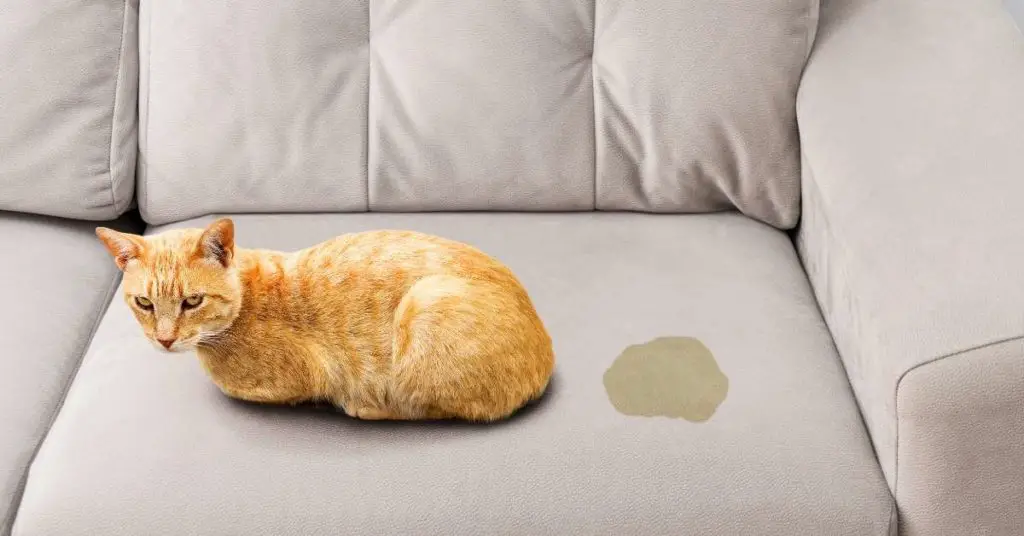
There are a few different symptoms that you might notice if your cat is in heat, including:
- Loud meowing or yowling
- Increased affection towards you or other cats
- Rubbing against furniture or people
- Restlessness
- Loss of appetite
Treatment for a Cat in Heat
If you don’t want to get your cat pregnant, the best thing to do is to get her spayed. This will prevent her from going into heat and will also help reduce the risk of her developing certain health problems, such as cancer of the uterus.
You can also try to keep her indoors and away from male cats, but this is not always possible or practical. If you do let her outdoors, keep a close eye on her and bring her back inside as soon as she shows signs of being in heat. You can also try using a pet-friendly pheromone diffuser to help calm your cat and reduce her desire to mate.
2. Infections
Another possible reason for brown fluid leakage in cats is an infection. Urinary tract infections, for example, are relatively common in cats and can sometimes cause brownish urine to be leaked.
Other types of infections, such as those affecting the reproductive organs, can also lead to brown fluid leakage. If you suspect that your cat has an infection, it’s important to take them to the vet as soon as possible for treatment.
Symptoms That Your Cat Has an Infection
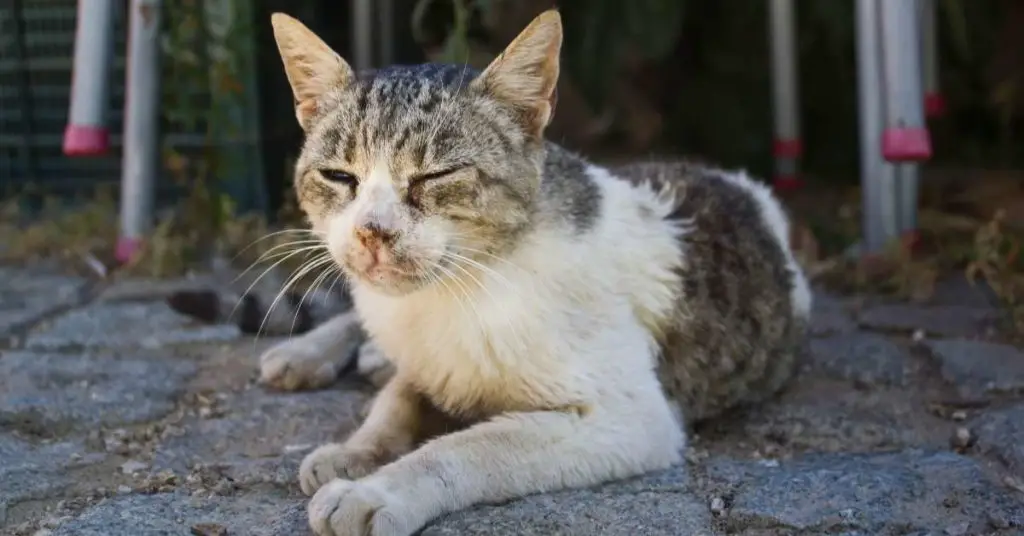
There are a few different symptoms that you might notice if your cat has an infection, including:
- Fever
- Lethargy
- Loss of appetite
- Vomiting
- Diarrhea
- Increased urination
- Blood in the urine
Treatment for Infections
As a general rule, infections need to be treated with antibiotics. Your vet will likely prescribe oral antibiotics for your cat, which you’ll need to give them for the full course of treatment.
In some cases, however, your cat may need to be hospitalized and given intravenous antibiotics. This is typically only necessary if your cat is very sick or if they’re not responding to oral antibiotics.
3. Diarrhea
Diarrhea is another possible reason for brown fluid leakage in cats. While diarrhea itself is not necessarily dangerous, it can sometimes lead to dehydration, which can be very dangerous for cats.
Dehydration occurs when the body loses more fluids than it takes in. This can cause serious problems, such as organ failure. If you think that your cat might be dehydrated, it’s important to take them to the vet as soon as possible.
Symptoms That Your Cat Is Dehydrated
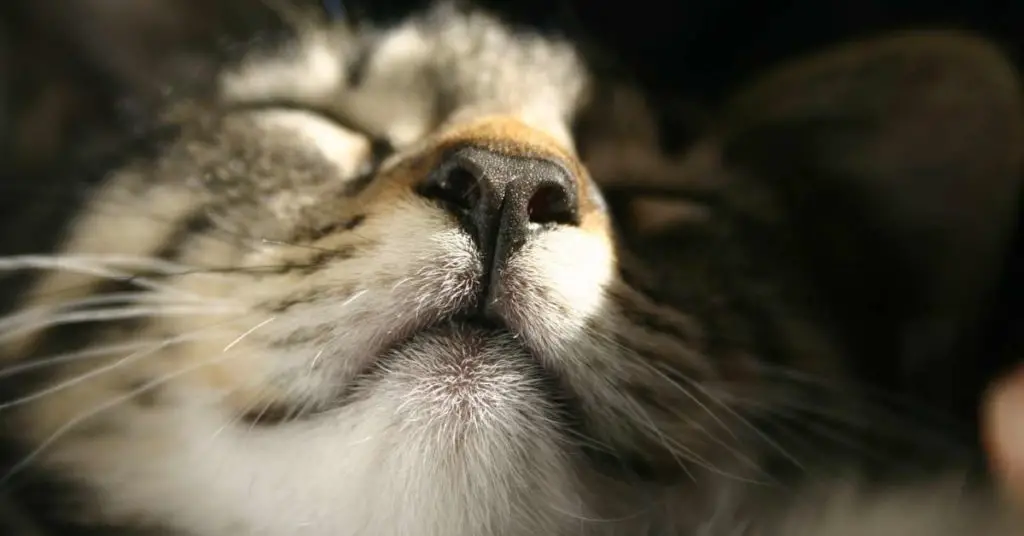
There are a few different symptoms that you might notice if your cat is dehydrated, including:
- Dry nose
- Dry mouth
- Lethargy
- Loss of appetite
- Decreased urination
Treatment for Dehydration
If your cat is dehydrated, the best thing to do is take them to the vet as soon as possible. The vet will likely give them fluids intravenously, which will help to rehydrate them.
4. Gastrointestinal Issues
Gastrointestinal issues (GI) are another possible reason for brown fluid leakage in cats. GI issues refer to any problems that occur in the gastrointestinal tract, which includes the stomach and intestines.
There are a variety of different GI issues that can affect cats, such as inflammatory bowel disease (IBD), intestinal parasites, and cancer.
Symptoms That Your Cat Has a GI Issue
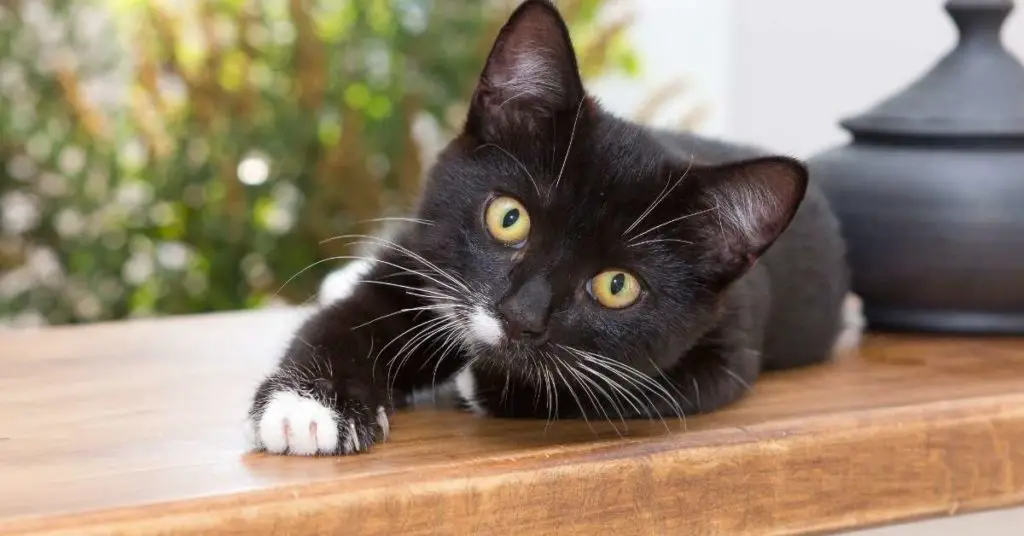
There are a few different symptoms that you might notice if your cat has a GI issue, including:
- Vomiting
- Diarrhea
- Lethargy
- Loss of appetite
- Weight loss
Treatment for GI Issues
I know how worrying it can be to see your cat leaking brown fluid. If you think that your cat has a GI issue, the best thing to do is take them to the vet as soon as possible. The vet will likely recommend a course of treatment based on the specific GI issue that your cat has.
5. Your Cat Has Anal Gland Issues

Another common reason for brown leakage in cats is anal gland problems. Your cat has two small sacs located just inside her anus. These sacs are also called anal glands or anal sacs.
They are lined with glands that secrete a foul smelling (to us) oily substance. The substance is used by your cat to mark her territory. When your cat defecates, some of the secretions are left on the feces.
If your cat feels threatened, she may also express her anal glands deliberately as a way to make herself look bigger and scarier to an intruder.
Most cats never have any problems with their anal glands. However, if the ducts that connect the sacs to the outside get blocked, the sacs can fill up with fluid and become impacted.
Anal gland impaction is uncomfortable and sometimes painful for your cat. If left untreated, impacted anal glands can rupture and lead to infection.
Symptoms of Anal Sac Disorder

Inflamed or impacted anal sacs can cause your cat a lot of discomfort. The symptoms of anal sac disorder include scooting (dragging the rear end along the ground), licking or biting at the anus, and straining to defecate.
You may also notice your cat’s anus is irritated, reddened, or discharge is present. If the condition progresses, your cat may experience rectal prolapse (eversion of the rectum) or perianal fistulas (abnormal tracts connecting the anal sacs to the skin around the anus).
Here I’ll try to analysis all the symptoms elaborately so that you can identify easily.
1. Scooting (Dragging the rear end along the ground)
Scooting is when your cat drags their rear end along the ground. This is often a sign that something is wrong with their anal sacs.
According to the ASPCA, scooting is one of the most common signs of anal sac problems in cats. If your cat is scooting, it’s important to take them to the vet as soon as possible.
2. Licking or Biting at the Anus
Another common symptom of anal sac problems is when your cat licks or bites at their anus. This is often because the anal sacs are full and causing your cat discomfort.
3. Straining to Defecate
If your cat is having trouble defecating, it could be a sign of anal sac problems. This is often because the anal sacs are impacted and blocking the passage of feces.
4. Irritated, Reddened, or Discharge Present
If you notice that your cat’s anus is irritated, reddened, or there is discharge present, it could be a sign of anal sac problems.
5. Rectal Prolapse or Perianal Fistulas
I know these sound serious, and they are. Rectal prolapse is when the rectum turns inside out and comes out of the anus. Perianal fistulas are abnormal tracts that connect the anal sacs to the skin around the anus.
If your cat is experiencing either of these symptoms, it’s important to take them to the vet immediately.
How to Treat Anal Sac Disease in Cats?
The treatment for anal sac disease will depend on the severity of the condition. In some cases, the anal sacs may need to be expressed manually. This is done by a vet or trained professional.
In other cases, your cat may need antibiotics if there is an infection present. In severe cases, surgery may be necessary to remove the anal sacs.
Home care for your cat will be important in all cases of anal sac disease. This includes cleaning the area around the anus and giving your cat a high-fiber diet. A high-fiber diet helps to bulk up the stool, which can help to express the anal sacs naturally.
Canned pumpkin is a great source of fiber for cats and can be added to their food. You should also avoid using any type of cleaning product around the anus, as this can irritate the area further.
If you think your cat may have anal sac disease, it’s important to take them to the vet as soon as possible. Anal sac disease can be painful and uncomfortable for your cat, so getting treatment early is important.
What if an Abscess Appears in A Cat’s Anal Gland?

An abscess is an accumulation of pus that occurs when the body attempts to fight an infection. If an abscess appears in a cat’s anal gland, it is usually the result of a bacterial infection.
The most common symptom of an anal gland abscess is a lump or mass near the anus. Other signs include straining to defecate, general discomfort, scooting, and constipation or diarrhea.
If your cat has any of these symptoms, it’s important to take them to the veterinarian as soon as possible. If not treated promptly, an anal gland abscess can rupture and lead to even more serious problems.
Treatment typically involves draining the abscess and administering antibiotics. In some cases, your veterinarian may also recommend surgery to remove the affected anal gland. With prompt treatment, most cats make a full recovery from an anal gland abscess.
Things to Do if Your Cat is Leaking Brown Fluid

If your cat is leaking brown fluid, it is important to take her to the veterinarian as soon as possible. Brown fluid can indicate a number of serious health conditions, including liver disease, kidney failure, and cancer.
In some cases, the brown fluid may be due to a simple gastrointestinal upset, but it is always best to err on the side of caution and have your cat examined by a professional.
Once at the vet, your cat will likely undergo a physical examination, bloodwork, and imaging studies. With this information, the vet will be able to determine the cause of the brown fluid and recommend the appropriate treatment.
In most cases, the sooner the condition is diagnosed, the better the prognosis. So if your cat is leaking brown fluid, don’t delay in getting her to the vet.
The Summary
There are a number of potential causes of brown fluid leaking from your cat. Some, like anal sac disease, are relatively benign. Others, like liver disease and cancer, can be much more serious.
As a conscious cat owner, it’s important to be aware of the potential causes of brown fluid leaking from your cat. If you notice this symptom, take your cat to the vet as soon as possible for an examination. With prompt treatment, many conditions can be successfully managed.
So if your cat is leaking brown fluid, don’t delay in getting her to the vet. The sooner the condition is diagnosed, the better the prognosis.





